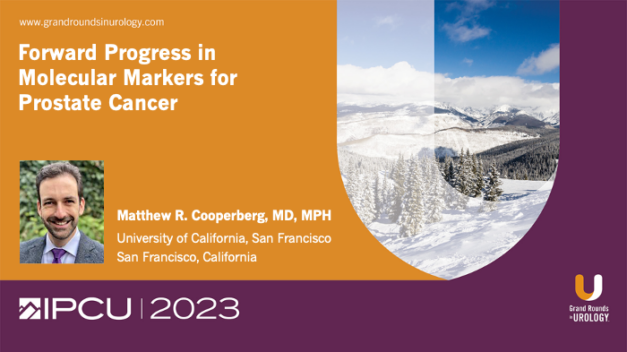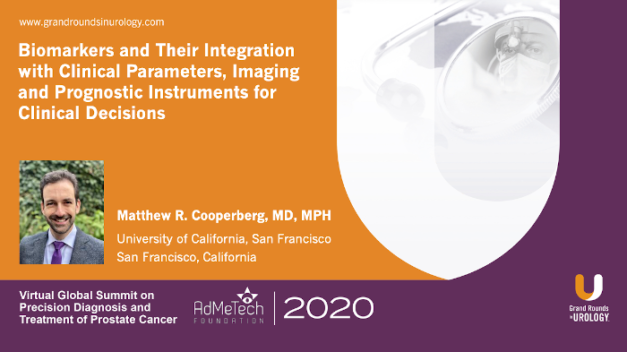Pros and Cons of the ReIMAGINE Trial
Matthew R. Cooperberg, MD, MPH, discusses the strengths and weaknesses of the Risk and Screening arms of the ongoing ReIMAGINE trial. He begins by describing the two arms of the study, ReIMAGINE Screening and ReIMAGINE Risk, and then focuses on the Screening arm, digging into the participant data.
Dr. Cooperberg addresses the sequence of screening tests in the ReIMAGINE trial, and reasserts the value of PSA as an initial screening marker, using supporting evidence from the ongoing STHLM3-MRI trial.
Dr. Cooperberg concludes by explaining that ReIMAGINE Risk will be useful as a biorepository in the future. While ReIMAGINE Screening shows PSA with magnetic resonance imaging (MRI) is better than PSA alone, he reiterates that as a first screen, PSA <1 (or 1.5) is tough to beat. Dr. Cooperberg explains that MRI is useful for helping to guide biopsy and is acceptable as a second screening tool. However, other markers are more effective and less expensive in the United States.
Read More




